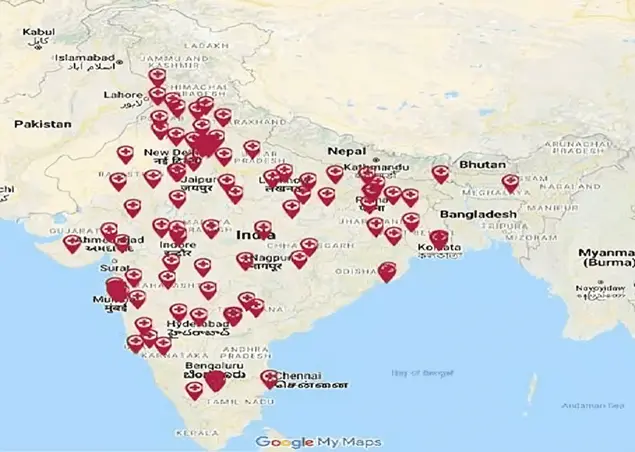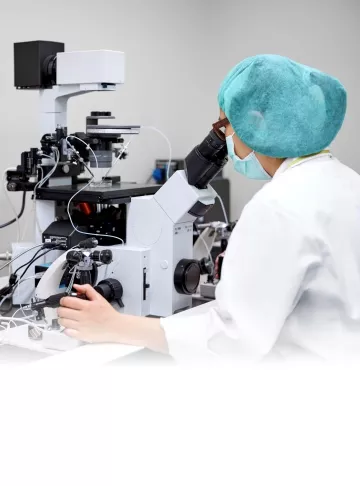What is the Preimplantation Genetic Diagnosis/ Testing - Aneuploidies procedure?
The preimplantation genetic diagnosis procedure is carried out in an early embryo before transferring it into the uterus. This is usually done when either couple has a history of miscarriages or genetic disorders. This procedure helps avoid or eliminate the risk of undesired genetic traits and chromosomal abnormalities.
Before offering the procedure, fertility doctors will examine and analyse the genetic history and other fertility-related factors. This increases the probability of having a healthy child.
The preimplantation genetic testing process includes the following:
- PGS (Preimplantation Genetic Screening)
This involves screening the embryos for chromosomal disability. PGS helps ensure the chromosomes are perfect 23 pairs, without any extra or missing chromosomes.
- PGD (Preimplantation Genetic Diagnosis)
PGD includes examining embryos for genetic conditions or single gene defects already identified in one or both parents.
What are the Steps in PGT-A?
The preimplantation genetic diagnosis steps are:
- Medical Diagnosis
The highly experienced fertility doctors will discuss the necessity of PGT-A with you during the consulting sessions. Depending on the DNA evaluation results that reveal if you and your spouse carry the gene that causes the illness, the doctor will determine a clinical diagnosis.
- Genetic Counselling
Your recommended genetic counsellor will go through the disease's specifics, your genetic susceptibility evaluation, and its propensity to arise during pregnancy. The implications and restrictions of PGT, as well as potential results, are discussed during the counselling.
- Preparations for the PGT feasibility Test and Workup
After receiving your results and consent, the PGT laboratory will assess if PGT-A is appropriate for your condition. You and your spouse will need to provide blood samples to the testing lab of the clinic after permission to prepare for the PGT workup. Your IVF cycle might start when the workup procedures are finished.
Risks of Preimplantation Genetic Diagnosis/ Testing (PGT-A) Procedure
The following are PGTA procedure issues and drawbacks:
- Because PGS and PGD involve In Vitro Fertilisation, there are hazards related to ovarian hyperstimulation syndrome, multiple pregnancies, and an increased chance of birth abnormalities.
- Risks of pelvic infection, miscarriage, ectopic pregnancy, etc., are raised.
- Embryo biopsy and freezing
- IVF infants are often preterm and underweight when they are born.
- There are no healthy embryos to implant, according to this testing.
- Because testing does not detect every genetic illness or abnormality, there is no assurance that the unborn child will always be healthy.
We may conclude that it is preferable to employ PGS in assisted reproductive procedures since it increases the likelihood that the therapy will be successful after learning about all of its benefits and drawbacks.
Pregnancy Calculator Tools for Confident and Stress-Free Pregnancy Planning
Get quick understanding of your fertility cycle and accordingly make a schedule to track it
Get a free consultation!
















